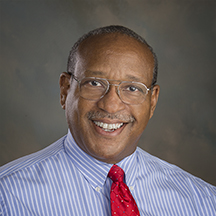
A student qualified to take this course has to have
successfully completed CHS101 Church History I course in this series and/or
show a qualifying ability and knowledge of Church History from Circa 30 CE to
300 CE. These students must have a good working knowledge of key people and
events in Church History during this stated course period.
CHS202 explores the early development of the Christian
Church from the Apostolic Age through the end of the 3rd century. This course
examines the spread of Christianity, the formation of early Christian
doctrines, and the Church's confrontation with the Roman Empire. Students will
study key events, figures, and writings to gain a comprehensive understanding
of how early Christianity evolved and laid the foundations for future
theological and ecclesiastical developments. The course also includes a comparative
analysis of Judaism, Christianity, and Islam, highlighting their theological
similarities and differences.
Chapter Titles and Topics:
Learning Objectives:
Recommended Texts:
This course provides a thorough grounding in the
foundational period of early Christianity, equipping students with the
knowledge and skills to understand and engage with the historical and
theological developments that have shaped the Christian tradition from circa 30
CE to 300 CE.
Upon successful completion of CHS202, students will be able
to:
These outcomes will equip students with a comprehensive
understanding of the early Christian Church's development and its historical
and theological contexts, preparing them for further studies in Church history,
theology, and related disciplines.
Read the Preface: The Church History Series in the CourseBook
Read Chapter 8 of the eBook – “Comparative Analysis of Judaism, Christian, and Muslim Theology”
Read Chapter 7 of the eBook – “Transition to the Patristic Period”
Read Chapter 6 of the eBook – “The Development of Church Structure”
Read Chapter 5 of the eBook – “The Persecution of Christians”
Read Chapter 4 of the eBook – “Theological Developments and Controversies”
Read Chapter 3 of the eBook – “Early Christian Communities”
Read Chapter 2 of the eBook – “The Apostolic Mission, Saul's Conversion, and the Missionary Journeys of Paul”
Fill out the course evaluation and submit
Administrator

Lorem Ipsum is simply dummy text of the printing and typesetting industry. Lorem Ipsum has been the industry's standard dummy text ever since the 1500s, when an unknown printer took a galley of type and scrambled it to make a type specimen book.
Lorem Ipsum is simply dummy text of the printing and typesetting industry. Lorem Ipsum has been the industry's standard dummy text ever since the 1500s, when an unknown printer took a galley of type and scrambled it to make a type specimen book. It has survived not only five centuries, but also the leap into electronic typesetting, remaining essentially unchanged. It was popularised in the 1960s with the release of Letraset sheets containing Lorem Ipsum passages, and more recently with desktop publishing software like Aldus PageMaker including versions of Lorem Ipsum.
CHS 202 - Church History II: Circa 30 to 300 CE (3cr)
No Review found